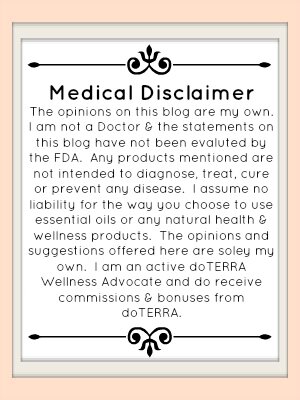How Long Does Alcohol Detox Take?
When you're thinking about quitting alcohol, one of the first questions that comes up is how long detox will actually take. You might hear stories about quick recoveries, but everyone’s experience is different. The timeline depends on your drinking history, physical health, and several other factors you may not expect. Before making any decisions, it’s important to understand what actually happens during the detox process and what you should be prepared for next.
When Does Alcohol Withdrawal Begin?
Alcohol withdrawal typically begins within 6 hours after the last drink for most individuals. For those with a history of heavy alcohol consumption, symptoms may appear within 6 to 12 hours, even if there's merely a reduction in intake. Initial symptoms such as anxiety, tremors, headaches, nausea, and sweating may manifest as blood alcohol levels decrease.
However, the onset of withdrawal can vary among individuals. Factors including age, gender, genetic predisposition, and overall health can influence the timing and severity of symptoms, which may not fully develop for several days in some cases. The body's reaction to the sudden absence of alcohol generally underlies these withdrawal symptoms.
How Long Does Alcohol Detox Last?
How long alcohol detox lasts can vary significantly depending on several factors, including the individual's history of alcohol use, overall health, and the presence of any co-occurring conditions. Generally, detoxification from alcohol begins within hours after the last drink. Mild withdrawal symptoms, such as anxiety or tremors, may resolve within 24 to 48 hours.
However, acute Alcohol Withdrawal Syndrome can persist for 7 to 10 days, with severe cases potentially extending up to two weeks or more. This is particularly common in individuals with long-term, heavy alcohol use and often necessitates medical supervision during detoxification.
Beyond the initial withdrawal phase, post-acute withdrawal symptoms, including cravings and mood disturbances, can persist for several weeks or even months. It's important to note that the duration of alcohol detox can vary based on individual circumstances and the severity of alcohol dependency.
What Are the Stages of Alcohol Detox?
The process of alcohol detoxification involves several stages, each characterized by different symptoms and durations. Typically, detox begins 6 to 12 hours after the last consumption of alcohol, with initial withdrawal symptoms such as anxiety and tremors emerging.
The peak period for withdrawal symptoms usually occurs within 2 to 3 days, during which severe symptoms may manifest, particularly in the absence of medical supervision. Over the subsequent weeks, these symptoms generally start to diminish, although some may persist. Post-acute withdrawal symptoms, which can include disturbances in sleep, mood, and concentration, may continue for several months as the detox process progresses.
Which Symptoms Should You Expect During Detox?
During alcohol detoxification, symptoms commonly manifest within the initial 6 to 12 hours following the cessation of alcohol consumption. Early withdrawal symptoms typically include anxiety, sweating, headaches, tremors, and nausea.
As the detox process advances, more severe symptoms may develop, such as elevated blood pressure, increased heart rate, fever, and confusion. The likelihood of experiencing seizures is highest between 12 to 48 hours after the last drink.
Delirium tremens, a severe and potentially life-threatening condition, can occur later in the detox process and is characterized by fever, agitation, and altered levels of consciousness. Additionally, psychological symptoms such as irritability, mood fluctuations, and disruptions in sleep patterns may continue for several weeks or months.
Where Can You Find Medical Detox and Ongoing Care?
For individuals seeking medical detox and ongoing care, many treatment centers provide comprehensive recovery services in a structured and supportive environment. These facilities typically offer inpatient detoxification programs along with behavioral health services to ensure both physical and emotional needs are addressed during early recovery.
It's important to note that treatment for alcohol addiction often begins with a medically supervised detox. In cases of immediate health risks, visiting the nearest emergency room is advisable. For those seeking trusted support, Guidance Detox Center can be a valuable resource for accessing detox services and ongoing care during recovery. Rehabilitation centers also commonly provide 24-hour admissions assistance, making it easier for individuals to initiate treatment and progress on their recovery journey.
What Is Delirium Tremens and Who Is at Risk?
Delirium tremens is a serious and potentially life-threatening condition that can occur during alcohol withdrawal. It typically manifests 48 to 72 hours after the last consumption of alcohol and is characterized by symptoms such as confusion, hallucinations, seizures, high fever, sweating, and an increased heart rate.
Individuals with a prolonged history of heavy alcohol use or impaired liver function are at a heightened risk of experiencing severe alcohol withdrawal symptoms, including delirium tremens.
Additionally, those over the age of 65 face an increased risk. Given the high mortality rate associated with severe cases of delirium tremens, it's crucial to seek immediate medical attention if any symptoms arise during the withdrawal process.
What Factors Influence Detox Duration and Severity?
Several personal and medical factors contribute to the duration and severity of withdrawal symptoms during alcohol detoxification. These factors include age, gender, genetic predisposition, the quantity of alcohol consumed, and an individual's history of alcohol use disorder. Typically, older adults and women may experience more severe symptoms during detox.
Additionally, individuals with co-occurring mental health disorders, such as depression, may undergo a more prolonged and intense withdrawal process.
Those who consume alcohol heavily and frequently might experience withdrawal symptoms lasting from seven to ten days or longer. Furthermore, an individual’s overall physical health, including liver function, significantly influences the detoxification timeline and experience.
What Are the Options for Safe Alcohol Detox?
For individuals seeking to detox from alcohol, prioritizing safety is essential. The most secure approach involves obtaining medical guidance and considering professional treatment options. A medically-supervised detox program in an inpatient facility is often recommended as it provides continuous monitoring by licensed medical professionals. This round-the-clock supervision helps manage withdrawal risks, including seizures or delirium tremens.
To alleviate withdrawal symptoms, medications such as benzodiazepines, anti-seizure drugs, and beta-blockers may be administered. For those with milder cases, outpatient detox services are available. However, these also require consistent oversight from healthcare providers to ensure safety. Consulting with healthcare professionals is crucial when determining the most appropriate detox plan. Opting for a professional, individualized detox program significantly enhances safety during this critical phase of recovery.
How Can You Support Recovery After Detox?
After completing alcohol detox, establishing a solid foundation for long-term recovery involves several key steps. It's advisable to seek ongoing treatment and professional support, such as cognitive behavioral therapy or motivational interviewing, to effectively manage post-acute withdrawal symptoms and maintain overall health.
Building a robust support network is crucial; this can include family, friends, and community groups that provide both emotional support and accountability. Engaging in individualized treatment programs that offer psychological support can address specific mental health needs.
Additionally, participating in educational programs focused on relapse prevention and developing effective coping skills is essential for a sustainable recovery journey.
Prioritizing these measures can significantly reduce the risk of relapse and help maintain a positive, healthy lifestyle post-detox.
Conclusion
Alcohol detox isn’t easy, but understanding what to expect helps you prepare and stay safe. Withdrawal symptoms and recovery time vary for everyone, but with the right support and medical care, you can get through detox and move toward lasting sobriety. Don’t try to do it alone; reach out to professionals who can guide you through each stage. With commitment and help, you’ll be on your way to recovery and a healthier, alcohol-free life.







